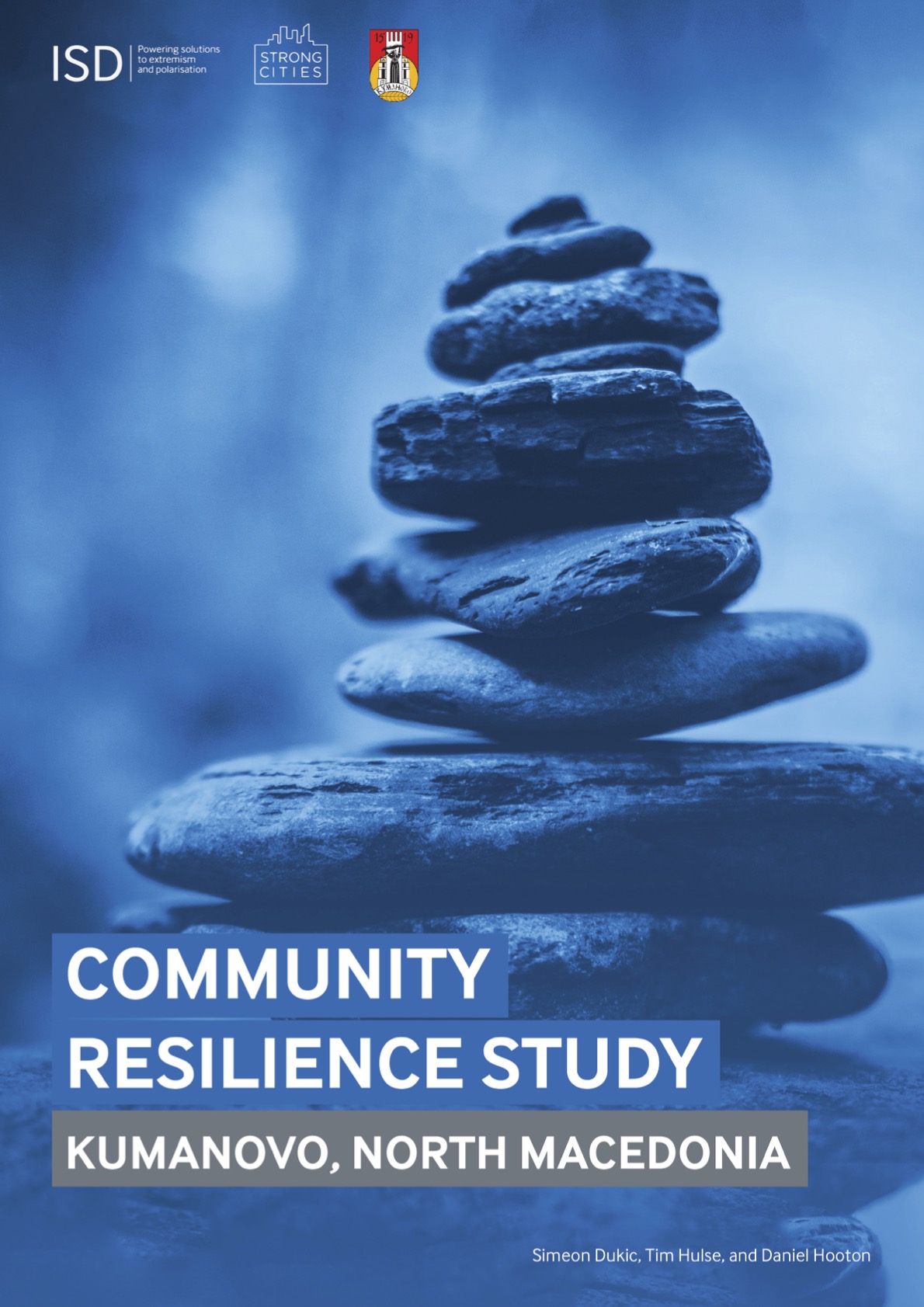Community Resilience Study: Kumanovo, North Macedonia

Published: 29th January, 2021
Authors: Simeon Dukić, Tim Hulse, Daniel Hooton
As part of its Strong Cities Network regional engagement in Kumanovo, North Macedonia, the Institute for Strategic Dialogue conducted a representative survey of the population to better understand local dynamics of resilience. The findings from this study will serve as an evidence base to tailor and target Community Action Team activities listed in the Kumanovo Local Action Plan for Preventing and Countering Violent Extremism. In addition, this data serves as a baseline of community resilience against which the impact of preventative measures in the municipality can be evaluated.
The research shows that Kumanovo’s population is relatively resilient, with the biggest differences in resilience scores found in an individual’s age and residential neighbourhood. The research also shows that the resilience of communities in Kumanovo is most affected by their trust in public institutions. Equally important, the results show that public confidence in the response of local authorities, schools and religious institutions to violent extremism has a significant impact on resilience in Kumanovo. This suggest that investing time and resources in strategic planning and implementation of policy and programs that strengthen social cohesion can have positive implications on the resilience of residents.
Simeon Dukić works as a Manager on the Strong Cities Network at ISD. He leads programming work in the Balkans and Central Asia, with a specific focus on piloting the “Local Prevention Network” model and strengthening national-local coordination in preventing and countering violent extremism in the Western Balkans.
Tim Hulse is the Monitoring and Evaluation Manager at ISD, working predominately on the originations’ capacity building, local government coordination and education programmes. He leads on developing and managing M&E systems for a range ISD projects in order to demonstrate the impact that they have in preventing and countering hate, polarisation and extremism. As part of this role he also advises and supports a number of ISD partners in developing their own M&E systems.
Daniel Hooton is Head of International Cities Programmes at ISD, leading Strong Cities Network strategy, programming and evaluation across Africa, Asia, the Balkans and the Middle East.
